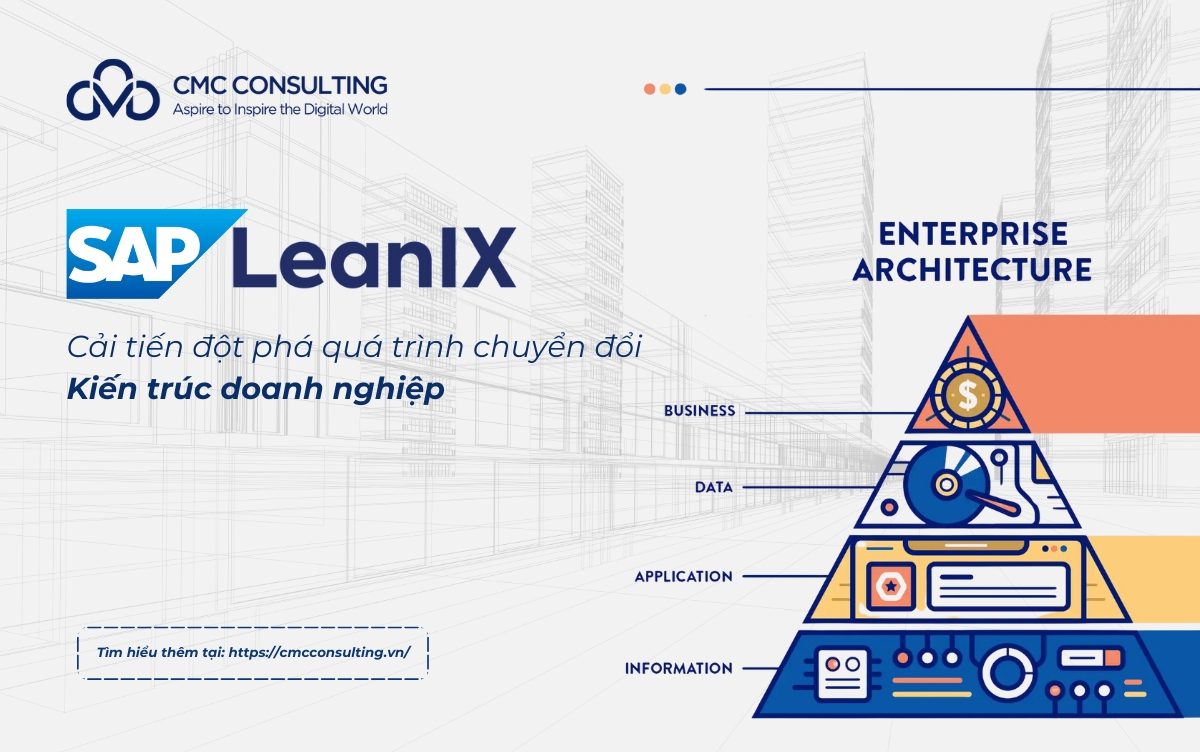Smart Factory is a groundbreaking advancement of the 4.0 Industrial Revolution, creating a new global trend in Manufacturing Digital Transformation. However, in Vietnam, the term "Smart Factory" is still not widely known.
In essence, Smart Factory results from the transition from traditional manual manufacturing - where human is required at every production stage - to the use of machinery and the application of the 4.0 technology such as the Internet of Things (IoT), Big Data, Artificial Intelligence (AI), and Cloud Computing. This transformation automates production lines, collects and analyzes data, allowing remote monitoring and management through a comprehensive data governance platform.
1. What is Smart Factory?
As defined by SAP - one of the world's leading enterprise software companies, Smart Factory (also known as a Digital Factory or Connected Factory) is a system that uses advanced technologies like AI and machine learning to analyze data, control automated processes, and continue learning during operation, creating a production environment where manufacturing facilities and logistics systems operate without human intervention.

Smart factory is a real-virtual system that utilizes advanced technology
This represents a leap from a traditionally automated manufacturing system to a flexible connected system. These factories can self-optimize performance across broader networks, adapt and learn from newest real-time conditions, and autonomously manage entire production processes, thereby providing flexibility and high efficiency throughout the supply chain.
The ability to adapt and anticipate technological trends is crucial for determining competitiveness and market position. However, most factories in Vietnam operate with low infrastructure and limited IT applications in production management. To implement the Smart Factory model, businesses need thorough preparation regarding Technology - Processes - People, leveraging the knowledge and expertise of year-long experienced consulting and implementation firms to avoid inefficient spending of substantial budgets.
2. Benefits of Smart Factory
The outstanding benefits of Smart Factory provide competitive advantages for businesses in the market. When operational processes are optimized and made smarter, reducing costs compared to competitors, the production capacity and quality of the business will also improve.
- Process Optimization: The connectivity offered by IoT and Industrial IoT allows seamless communication between machines, departments, and people. This connectivity enables the optimization of data collection and processing, thereby enhancing labor productivity. Smart Factory relies on automation to complete processes, minimizing human intervention and eliminating repetitive manual tasks. Automated machinery can be programmed to operate continuously, speeding up production, saving time and labor costs, reducing maintenance expenses, minimizing waste, and stabilizing operational processes.
- Product Quality Control: Product quality control is a significant concern for many manufacturers. In Smart Factory, IoT technology and sensors monitor and control the product creation process. When abnormal conditions, which affect product quality, are detected, the system automatically issues early warnings. This allows businesses to identify the source of issues and implement corrective actions in time, proactively managing risks at the end of the cycle. Early detection of faults and machine issues also helps businesses manage equipment and production time, ensuring that they meet customer orders on time and in quality, thus enhancing customer satisfaction.
- Remote Monitoring: The ability to display the operational status of machine components (operation history and real-time status reports) enables factory managers to quickly monitor and diagnose systems remotely, identifying and addressing issues before they affect production operations and product quality.
- Pre-Maintenance: The predictive analysis of Smart Factories helps businesses plan maintenance accurately, reducing downtime and average time between failures, thereby optimizing unnecessary maintenance costs and spare parts inventory. Maintenance decisions are based on historical operation data and real-time machine reports.
3. SAP S/4HANA Manufacturing - The Foundation of Smart Manufacturing
As a module within the SAP S/4HANA platform, SAP S/4HANA Manufacturing is a comprehensive management solution for production processes, including production planning, capacity management, quality management, cost management, and material management. By applying SAP S/4HANA in Smart Factory, businesses can enhance productivity and improve operational efficiency.
SAP S/4HANA Manufacturing utilizes cloud computing technology integrated with AI to collect and automatically analyze advanced data, providing a foundation for IoT to operate Smart Factories. The features offered by SAP S/4HANA Manufacturing help businesses optimize production processes, minimize time and production costs, and improve product quality.

With its production planning feature, SAP S/4HANA Manufacturing integrates comprehensive production data, such as routing and bill of materials, to establish a database for planning activities and resources, improving overall production planning processes. This feature helps businesses optimize their operations and supply chain management, accelerates decision-making, and supports technical efforts, enhancing product quality management.
SAP S/4HANA Manufacturing automatically monitors and collects data on production and products to analyze production status, identify faults and issues, and support improvement strategies. Additionally, the material management feature in SAP S/4HANA assists businesses in optimizing inventory management processes, from production planning, order management, and tracking goods to quality management. This enables businesses to manage the entire purchasing process and inventory, covering order management, goods receipt and payment processes, warehouse management, stock tagging, and purchasing management.
With rapid data processing and analysis capabilities, compatibility, mobility, high safety, and security, SAP S/4HANA Manufacturing is an excellent technology solution for Smart Factories and manufacturing operations in general. Therefore, implementing SAP S/4HANA Manufacturing will help businesses enhance their competitiveness in the market and achieve sustainable growth in the future, especially for those in manufacturing where all business and management activities require high synchronization and accuracy.
With over a decade of experience in Digital Transformation for the manufacturing sector, CMC Consulting is a leading provider of comprehensive ERP consulting and implementation solutions. With a team of knowledgeable experts with practical experience in the field, CMC Consulting confidently accompanies businesses to solve all challenges and embrace new technologies.
Contact us for consulting from our Manufacturing Digital Transformation experts here.




 Giang Hoàng
Giang Hoàng 01/06/2023
01/06/2023
















